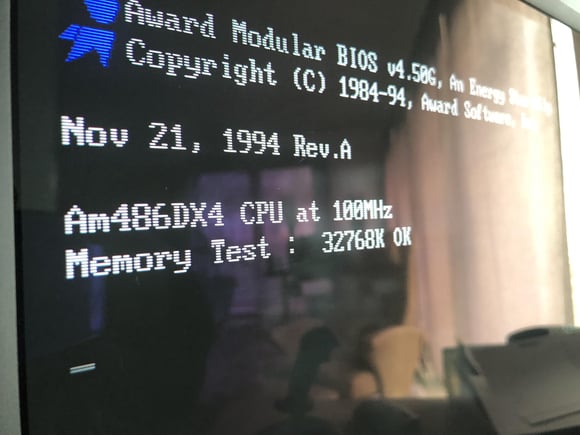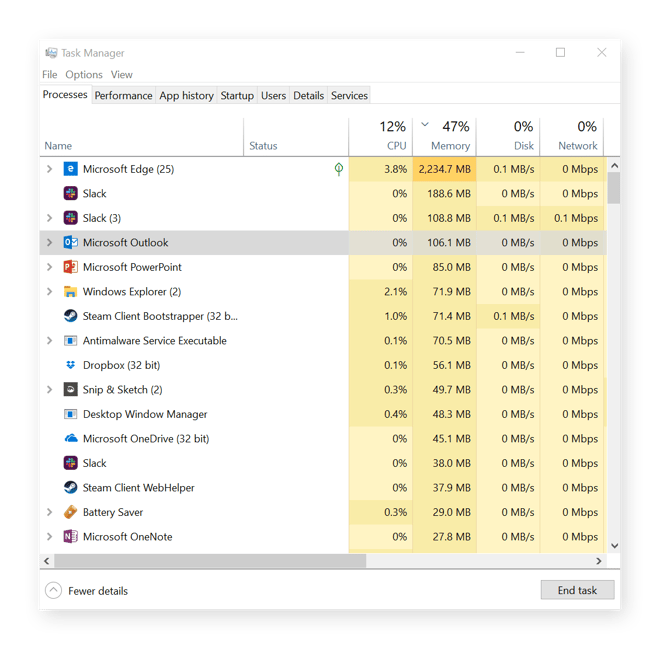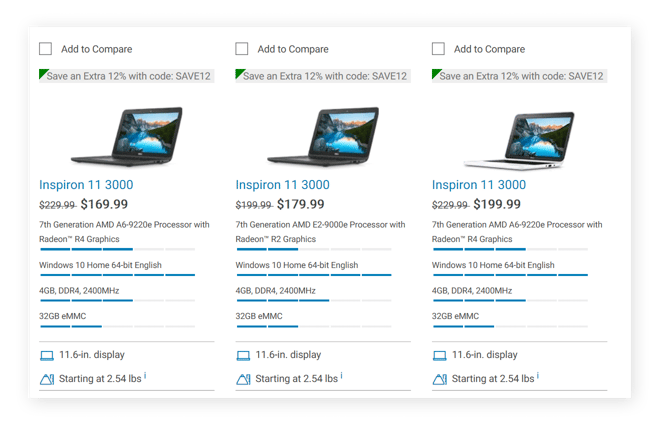Do You Connect The Register To The Ram Computer
What does RAM stand for?
RAM is short for "random access memory," and it's one of the most key elements of computing. RAM is a temporary memory banking concern where your computer stores information it's currently working on. RAM keeps information hands attainable so that it can be retrieved quickly, meaning your processor doesn't have to go into long-term storage to consummate firsthand processing tasks.
Every calculating device has RAM, whether it's a desktop computer (running Windows, MacOS, or Linux), a tablet or smartphone, or even an IoT calculating device (like a smart TV). Nearly all computers have a way of storing information for longer-term access, too. Just the working processes are done in RAM.
What does RAM do?
RAM is temporary storage that goes abroad when the power turns off. Then what is RAM used for, and then? It'south very fast, which makes it ideal for things the computer is actively working on, such as applications that are currently running (for example, the web browser in which y'all're reading this article) and the data those applications piece of work on or with (such as this commodity).
It can aid to recollect about RAM with the analogy of a physical desktop. Your working space — where you scribble on something immediately — is the height of the desk, where you lot desire everything inside arm'south reach and yous want no delay in finding annihilation. That's RAM. In contrast, if you want to continue anything to work on later, y'all put it into a desk drawer — or store it on a hard disk, either locally or in the cloud.

Ultimately, RAM allows you to admission multiple programs at once with speed and efficiency.
What is RAM used for?
RAM is used to process data immediately. RAM is significantly faster than a hard disk — xx to a hundred times faster, depending on the specific hardware blazon and job. When yous want to reach a specific task, reckoner operating systems load data from the hard disk drive into RAM to procedure it, such every bit to sort a spreadsheet or to display it on screen. When it'southward finished actively working with that data, the computer (sometimes at your instruction) saves it into long term storage.
So, for case, allow'south say you want to work with a spreadsheet. When you commencement Excel, your figurer loads the application into RAM. If y'all load an existing spreadsheet (which is stored on your hard disk), the operating system copies that information into RAM, too. Then you can work with Excel, crunching numbers in your usual style. In well-nigh circumstances, the computer responds super-fast, because RAM is fast.
When you're done with the spreadsheet, you tell Excel to save information technology — which means that the information gets copied to the hard disk or other long-term storage. (If yous forget to save and the power fails, all that work is gone, because RAM is temporary storage.) And when you shut the application, the computer operating organisation takes it out of RAM and clears the deck so that the space is free for you to work on the next thing.
Ane extended utilize of RAM is to help previously-accessed data be available much more quickly. When you get-go plow on your estimator and launch any application, such equally PowerPoint or Spotify, it takes a while to load. However, if you close a program and so relaunch it, the software opens almost instantly (unless your PC isn't optimized for functioning). That's considering the app is loaded out of the significantly faster RAM, rather than the difficult disk.
In curt, RAM is used for whatsoever task that requires fast access to computing resource.
1 notable instance is the operating system'due south own process. For instance, if you utilize Windows, its key functions — such every bit the ability to display images on your screen — are copied into RAM, because the OS needs super-fast access to the devices you apply all the time. Not every device driver is loaded into RAM immediately, but many of them are.
Another example is a Windows characteristic called SuperFetch, which records your usage patterns. Based on your existing behavior, information technology automatically pre-loads applications and files into RAM when you turn on your PC. This makes working with your computer significantly faster.
When an application needs a lot of RAM, it often gives y'all a progress bar or other status written report. That'south common when you load a game or powerful application. When you launch a game, you may see a "loading" screen while the calculator copies information into RAM, such equally maps, character models, and objects. That "loading" message is displayed to ensure you know something is happening, when the developers cannot make the process instantaneous!

How much memory practise I need?
The more RAM a computing device has, the faster information technology runs. If your device is old, you might need to upgrade the hardware. Every open application (including tabs in a web browser) consumes RAM. Y'all can run out — and when that happens, the calculator has to motion things effectually on the hard disk drive, which slows down the reckoner.
Note that RAM is dissimilar from storage: if you turn off your PC, the information is gone whereas on storage (SSDs, HDDs…) that data will exist saved.
How much RAM practise yous demand? It depends on the kind of piece of work you lot practise, how many things you do at once, and how impatient you are. As with so many other parts of calculating, nosotros ever want our devices to respond instantly!
In nigh circumstances, however, you need far less RAM than you exercise hard disk space. Again, retrieve of that concrete part desk. The more infinite y'all accept on the desktop, the more pieces of paper you can spread around. But that doesn't proceed you from wanting a very big file cabinet for long-term storage of all the files you've collected over time.
Once upon a fourth dimension — say, 25 years ago — when common hardware was based on Pentium CPUs, yous rarely needed more than 8MB of RAM — possibly 32 MB if y'all were a serious tech geek. That was plenty to run Windows 95, the offset Windows versions of Discussion, and Doom.

Today, a web browser with x-twenty open up tabs can easily consume over 2200 MB — or 2.2 GB — of RAM: When you buy a computer, generally you have several options: 2GB, 4GB, 16GB or even more memory.
When you buy a computer, generally you have several options: 2GB, 4GB, 16GB or even more memory. Most lower-end devices come up with 4GB retentivity today, while higher-end (and thus more expensive) machines accept 8GB or 16GB of RAM standard. (Yous can usually add more at an increased toll.)
Most lower-end devices come up with 4GB retentivity today, while higher-end (and thus more expensive) machines accept 8GB or 16GB of RAM standard. (Yous can usually add more at an increased toll.)
But how much do you lot really demand and for what? Here are our recommendations, which utilize to any operating system or personal reckoner hardware:
-
four GB of RAM: If you're only browsing the web, working with bones Office applications and maybe dabbling a bit in personal photo editing, y'all'll be fine with 4 GB of memory.
-
8 GB of RAM: Heavy multitaskers or calorie-free gamers should cull a computer with 8 GB of RAM.
-
xvi+ GB of RAM: Some tasks are inherently calculating intensive, such as serious gaming, video editing, and programming. "Enthusiast" users who never desire to experience slowdowns volition demand sixteen+ GB of RAM to be happy.
What happens when you don't have plenty RAM? How exercise you know?
When the computing tasks exceed the electric current amount of retention on the computer, the operating system moves a less-actively-used application onto the hard disk drive temporarily. When you switch dorsum to that application, it needs to recollect that information earlier yous tin piece of work with it. This is chosen paging or swapping , and it's time-consuming. The procedure causes delays and losses in functioning.
Yous can brand your computer run faster and better past regularly immigration wasteful ataxia out of your RAM. Y'all can do this manually, merely it'south easier to do with a little help, such as the Sleep Mode function of Avast Cleanup, which disables wasteful background services and processes, giving you back the RAM lost to unnecessary programs.
To avert farther operation losses when loading data from the difficult deejay, be sure to have a fast hd. Better withal, brand sure it'south an SSD, and not a traditional HDD.
Are there different types of RAM?
Yep, in that location are multiple types of RAM! As with other forms of estimator hardware, scientists are always trying to decrease energy consumption while they increase speed and capacity. RAM has been around since the first days of computing, and in early microcomputing eras it required enthusiasts to plug in chips one at a time.
By the late 1990s and early 2000s, users had their selection of static RAM (SRAM), Dynamic RAM (DRAM), or Synchronous Dynamic RAM (SDRAM).
Nowadays, the most common type is DDR-RAM, and there are diverse iterations, including DDR2, DDR3, DDR4, and DDR5. DDR stands for double-information rate and allows multiple file transfers at the same time. Current speeds are about 25 gigabytes per second for the latest DDR4-RAM.
There are also multiple types of speeds of DDR4 retention. By default, these memory sticks run at effectually 2500 MHz. If you want to squeeze the absolute maximum performance out of your memory, y'all tin get college clocked RAM. Nowadays you'll find memory ranging from 2333 MHz upwardly to 5000 MHz (which is interesting for gamers and GPU overclockers). The more than MHz your RAM has, the faster it is!
Eventually, DDR5 will replace DDR4, equally it has even farther increased performance — almost 50 GB/s.
There's also VRAM (Video Random Access Memory) which sits on your graphics card and is used for loading graphical data (such every bit games). Video RAM is fifty-fifty faster than normal memory and comes in the form of GDDR5X or HBM memory with higher bandwidths.
OK, I got what RAM is! What almost ROM?
While sounding like, RAM is very unlike from ROM. Read-just Retentivity is exactly what information technology says: a form of retentiveness that a computer tin read but not write to. That sounds limited, just you're actually familiar with it in the course of music CDs or DVD-ROMs.
How exercise I become more RAM without upgrading?
If you're struggling with low PC functioning, or your computer is equipped with 4 GB of RAM or less, and you don't want to spend money on upgrades, so the best fashion to meliorate computing speed is to free up your available RAM. At that place are two ways to practice that:
-
Close programs! If you lot don't need an open tab in Google Chrome, close it. You lot probably don't need to run a dozen applications at the same time, either. If y'all aren't actively using it, close it. Only launch what y'all actually use.
-
Utilise Slumber Mode: Our own Avast Cleanup Premium includes a characteristic that frees up retentiveness by unloading applications yous don't employ.
What should I look out for when buying RAM? (for the geeks)
Every bit mentioned above, today'due south DDR4 RAM clocks in at around 2133 and 3000 MHz. Gamers or other hardcore calculator users (such as programmers and multimedia editors) should look at higher clocked memory with specifications of up to 4800 MHz. Such retentivity comes from manufacturers like G.Skill or Corsair.
Nonetheless, while clock speeds are one matter, the other cistron that a certain audience (gamers, for instance) should consider is latency , the time delay between when a command in retentivity is entered and when information technology's executed. The lower this number, the higher the performance, equally you get fewer delays between instructions. To get the all-time possible performance, observe memory north of 4000 MHz with a latency of around CAS (Column Address Strobe) 15-eighteen. (For regular users, this is unlikely to make a meaningful impact, just gamers should get alee!)
Keep in mind the 32-Bit Windows versions
Terminal but non to the lowest degree, you lot need to keep in mind that you tin't simply install infinite amounts of RAM in your PC and look information technology to piece of work. In order to use more than iv GB of memory, you need to run a 64-Bit version of Windows — 32-fleck versions are limited to accost 3.5 GB of memory just. Many Windows vii users are still on 32-bit editions, so if you desire to use 4 GB of RAM or more than, you lot will definitely demand to jump on the 64-fleck bandwagon. Just, beware of installing a 64-bit version on a very old machine with less retention since that might have a counteracting effect. Addresses in Windows are now 64 bits long, instead of but 32 $.25. What this boils down to is a larger memory footprint of each application. Depending on which applications y'all use, Windows 64-bit might use 20–50% more of your memory. Equally you can see, 64-scrap only makes sense with larger organisation memory.
Concluding just non least, you lot demand to keep in mind that you can't simply install infinite amounts of RAM in your PC and expect it to work. In order to use more than iv GB of memory, you demand to run a 64-Bit version of Windows — 32-bit versions are limited to address 3.5 GB of retentiveness only. Many Windows 7 users are still on 32-flake editions, and so if you want to utilize 4 GB of RAM or more, yous will definitely demand to jump on the 64-flake bandwagon. But, beware of installing a 64-bit version on a very onetime machine with less memory since that might take a counteracting event. Addresses in Windows are now 64 $.25 long, instead of merely 32 bits. What this boils down to is a larger memory footprint of each awarding. Depending on which applications you utilise, Windows 64-flake might use 20–50% more of your memory. As you can see, 64-bit just makes sense with larger organization retention.
Do You Connect The Register To The Ram Computer,
Source: https://www.avast.com/c-what-is-ram-memory
Posted by: edwardssaffecre.blogspot.com


0 Response to "Do You Connect The Register To The Ram Computer"
Post a Comment